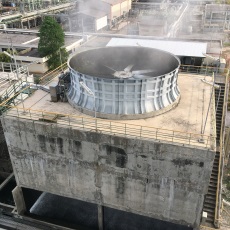

National Institutes of Health
Legionnaires' Disease
Also called: LegionellosisLegionnaires' disease is a type of pneumonia caused by bacteria. You usually get it by breathing in mist from water that contains the bacteria. The mist may come from hot tubs, showers, or air-conditioning units for large buildings. The bacteria don't spread from person to person.
Symptoms of Legionnaires' disease include high fever, chills, a cough, and sometimes muscle aches and headaches. Other types of pneumonia have similar symptoms. You will probably need a chest x-ray to diagnose the pneumonia. Lab tests can detect the specific bacteria that cause Legionnaires' disease.
Most people exposed to the bacteria do not become sick. You are more likely to get sick if you
- Are older than 50
- Smoke
- Have a chronic lung disease
- Have a weak immune system
Legionnaires' disease is serious and can be life-threatening. However, most people recover with antibiotic treatment.
Centers for Disease Control and Prevention
- CDC Vital Signs: Legionnaires' Disease (Centers for Disease Control and Prevention)Also in Spanish
- How the Lungs Work
 (National Heart, Lung, and Blood Institute)
(National Heart, Lung, and Blood Institute) - Legionella (Legionnaires' Disease and Pontiac Fever): Causes, How it Spreads, and People at Increased Risk (Centers for Disease Control and Prevention)
- Legionella (Legionnaires' Disease and Pontiac Fever): Diagnosis (Centers for Disease Control and Prevention)Also in Spanish
- Legionella (Legionnaires' Disease and Pontiac Fever): Diagnosis, Treatment and Complications (Centers for Disease Control and Prevention)
- Legionella (Legionnaires' Disease and Pontiac Fever): Fast Facts (Centers for Disease Control and Prevention)
- Legionella (Legionnaires' Disease and Pontiac Fever): History and Disease Patterns (Centers for Disease Control and Prevention)
- Legionella (Legionnaires' Disease and Pontiac Fever): Prevention (Centers for Disease Control and Prevention)Also in Spanish
- Legionella (Legionnaires' Disease and Pontiac Fever): Signs and Symptoms (Centers for Disease Control and Prevention)Also in Spanish
- Legionellosis (Legionnaires' Disease) (Logical Images)
- Legionnaires' Disease (Mayo Clinic)
- Sputum direct fluorescent antibody (DFA) (Medical Encyclopedia)Also in Spanish
- Legionnaires' Disease: a Problem for Health Care Facilities (Centers for Disease Control and Prevention)
- ClinicalTrials.gov: Legionnaires' Disease
 (National Institutes of Health)
(National Institutes of Health)
- Article: Investigation of atmospheric conditions fostering the spreading of legionnaires' disease in...
- Article: The cooling tower water microbiota: Seasonal dynamics and co-occurrence of bacterial...
- Article: Potential false-positive urine Legionella enzyme immunoassay test results.
- Legionnaires' Disease -- see more articles
- Legionnaire disease (Medical Encyclopedia)Also in Spanish






No comments:
Post a Comment